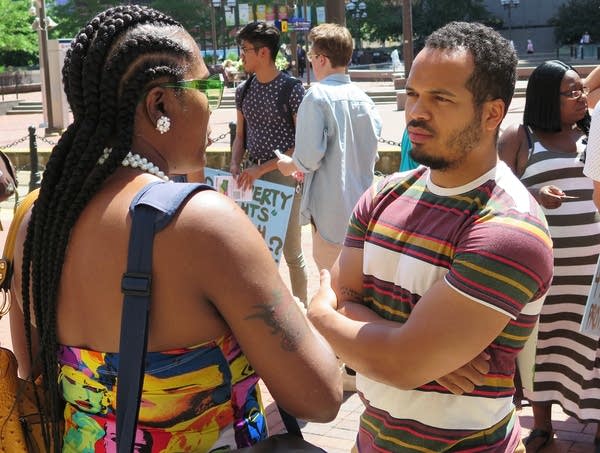Renter screening ordinance heading to final vote

Go Deeper.
Create an account or log in to save stories.
Like this?
Thanks for liking this story! We have added it to a list of your favorite stories.
The Minneapolis City Council housing committee on Wednesday unanimously endorsed a proposed ordinance that would limit how landlords screen rental applicants based on their credit, criminal and eviction histories. The move sets up a vote by the full council next month.
Dozens of people — mostly renters and their advocates — spoke for more than two hours.
Penny Ives believes the ordinance would help people who’ve put past mistakes behind find housing.
“Landlords are excluding people for things they did years ago. And that's really inappropriate. They need to be judged on who they are now,” she said.
Turn Up Your Support
MPR News helps you turn down the noise and build shared understanding. Turn up your support for this public resource and keep trusted journalism accessible to all.
Council members heard from about a dozen landlords who pushed for more study. Property owners said the ordinance in its current form could endanger other tenants, raise rents and drive small landlords out of business.
Margie Pierce said she tries to give breaks to people who’ve struggled in life, but she can't afford to end up with bad tenants.
"It's extremely distressing not knowing if you're going to hit a month when nobody turns in those rent checks, as a private person whose pockets are not endlessly deep,” Pierce told council members.
One landlord suggested the city compensate property owners for any ordinance-related losses.
Provisions of the ordinance include a ban on rejecting rental applicants for evictions or misdemeanor convictions more than three years old and, in most cases, felony convictions older than seven years. There is a cap on rental deposits and ban on excluding applicants based only on credit scores or lack of credit history.
Other U.S. cities have adopted similar measures.


